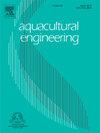Effects of biofilter management modalities on the microbiological status in RAS water to avoid recording capacities of biofilms
IF 3.6
2区 农林科学
Q2 AGRICULTURAL ENGINEERING
引用次数: 0
Abstract
Recirculating Aquaculture Systems (RAS) are increasingly seen as a breeding system of the future. the development of RAS requires understanding the microbial communities, as they play a significant role in the system functioning, water quality and therefore fish welfare and organoleptic characteristics. However, some aspects remain insufficiently explored, such as information regarding the residual microorganisms persisting in the system and originating from the past rearing conditions. Any studies on microbial communities in RAS mention specific protocols to obtain a similar initial microbial state in their systems before conducting their new studies. In this context, controlling the initial RAS microbial status (before starting a breeding cycle) and having a reliable, standardized protocol for obtaining this state in a reproducible way is essential. In contrast to a standard protocol (i.e. only raw cleaning), this study aimed to evaluate the effects of two treatments that differ in the way of management of biofilter media. The water microbial communities’ structure was assessed through the 16S rRNA gene over two weeks’ post-treatment. The results show that the standard protocol does not shift the microbial past of the tank and is responsible for strong inter-tanks heterogeneity. The testing protocol number T1 is the most reliable for homogenising initial microbial composition of tanks while preserving the microbial communities of interest.
生物过滤器管理方式对RAS水中微生物状况的影响,以避免生物膜的记录能力
循环水养殖系统(RAS)越来越被视为未来的养殖系统。RAS的发展需要了解微生物群落,因为它们在系统功能,水质以及鱼类福利和感官特性中起着重要作用。然而,有些方面仍然没有得到充分的探索,例如关于系统中残留的微生物和源自过去饲养条件的信息。任何关于RAS中微生物群落的研究都提到了特定的方案,以便在进行新的研究之前在其系统中获得类似的初始微生物状态。在这种情况下,控制RAS微生物的初始状态(在开始繁殖周期之前),并有一个可靠的、标准化的方案,以可重复的方式获得这种状态是至关重要的。与标准方案(即只有原始清洁)相反,本研究旨在评估两种处理方法在生物过滤介质管理方式上的不同效果。处理后两周,通过16S rRNA基因评估水体微生物群落结构。结果表明,标准方案不会改变槽内的微生物过去,而是造成槽间的强异质性。测试方案号T1是最可靠的均质初始微生物组成的坦克,同时保存感兴趣的微生物群落。
本文章由计算机程序翻译,如有差异,请以英文原文为准。
求助全文
约1分钟内获得全文
求助全文
来源期刊

Aquacultural Engineering
农林科学-农业工程
CiteScore
8.60
自引率
10.00%
发文量
63
审稿时长
>24 weeks
期刊介绍:
Aquacultural Engineering is concerned with the design and development of effective aquacultural systems for marine and freshwater facilities. The journal aims to apply the knowledge gained from basic research which potentially can be translated into commercial operations.
Problems of scale-up and application of research data involve many parameters, both physical and biological, making it difficult to anticipate the interaction between the unit processes and the cultured animals. Aquacultural Engineering aims to develop this bioengineering interface for aquaculture and welcomes contributions in the following areas:
– Engineering and design of aquaculture facilities
– Engineering-based research studies
– Construction experience and techniques
– In-service experience, commissioning, operation
– Materials selection and their uses
– Quantification of biological data and constraints
 求助内容:
求助内容: 应助结果提醒方式:
应助结果提醒方式:


